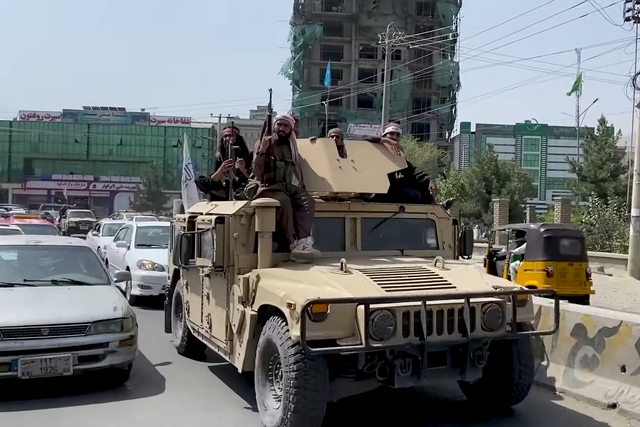A suicide bombing in the heart of Kabul claimed the life of Khalil Haqqani, Afghanistan's Taliban minister for refugees, along with several of his associates. The attack, confirmed by Taliban spokesman Zabihullah Mujahid, has been attributed to ISIS-K, the regional affiliate of the Islamic State group that has carried out numerous attacks against the Taliban regime since it regained power in 2021.
The explosion occurred at the Ministry of Refugees' headquarters on Wednesday, marking the most significant casualty among the Taliban's senior leadership in recent years. Officials from the Taliban-run Interior Ministry disclosed that the assailant disguised himself as a disabled visitor before detonating his explosives near Haqqani as he exited his office to attend prayers. At least four other officials were killed in the blast.
Khalil Haqqani, a prominent member of the powerful Haqqani network, was known for his commanding presence and close ties to the Taliban's leadership. He was the uncle of Sirajuddin Haqqani, Afghanistan's interior minister, and the brother of Jalaluddin Haqqani, the late founder of the Haqqani network-a group designated as a terrorist organization by the United States. Khalil Haqqani's role in the Taliban's resurgence included his entry into Kabul following the collapse of the Western-backed Afghan government in 2021.
#BREAKING: Taliban's minister of refugee and repatriation Khalil Haqqani has been killed in an explosion in Kabul, Aljazeera. pic.twitter.com/zUUIcREZh0 — Tajuden Soroush (@TajudenSoroush) December 11, 2024
Despite relative stability under Taliban rule, ISIS-K has continued its campaign of violence, targeting government officials, civilians, and foreign nationals in an effort to undermine the Taliban's authority.
Pakistan's Foreign Minister Ishaq Dar expressed shock over Haqqani's death, condemning the attack and extending condolences. "Pakistan unequivocally condemns terrorism in all its forms and manifestations," Dar wrote on X, formerly known as Twitter. He also noted that Islamabad was in contact with Kabul for further details on the incident.
The Haqqani network, known for its brutal tactics and sophisticated operations, has been a key player within the Taliban's hierarchy. Khalil Haqqani's death exposes vulnerabilities in the Taliban's leadership structure and highlights ongoing internal struggles between factions vying for control.
This bombing follows a series of high-profile attacks targeting Taliban officials. In March, a similar explosion in Mazar-e-Sharif killed the Taliban-appointed governor of Balkh province, Daud Muzmal. These incidents underscore the persistent threat posed by ISIS-K, even as violence has generally decreased since the Taliban's takeover.
The timing of the attack coincides with diplomatic developments that could alter Afghanistan's global standing. On Tuesday, Russia's State Duma advanced legislation that could lead to the removal of the Taliban from its list of designated terrorist organizations. While this step is preliminary, it signals a potential shift in Moscow's approach toward Afghanistan's ruling regime.
Meanwhile, tensions between Afghanistan and neighboring Iran have also escalated. Recent reports of Afghan casualties near the Iranian border, disputed by Tehran, have added to the region's instability. Iran's plans to deport two million undocumented Afghan migrants have further strained relations, with advocacy groups like HalVash alleging human rights violations against displaced Afghan nationals.




